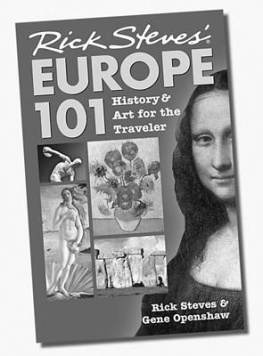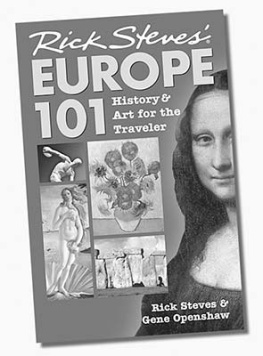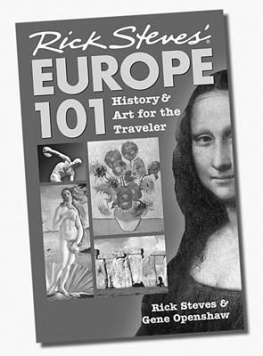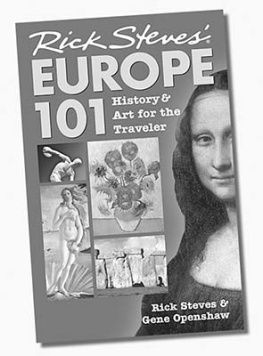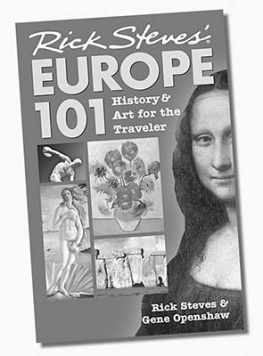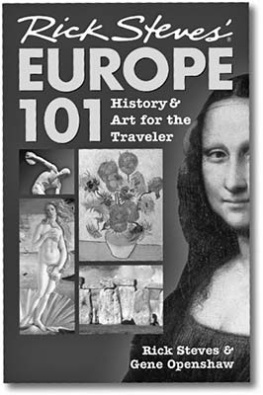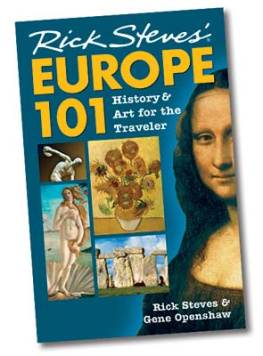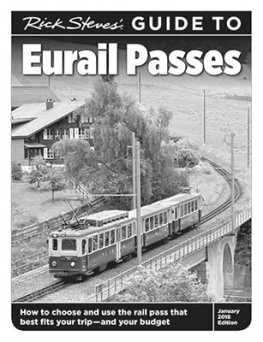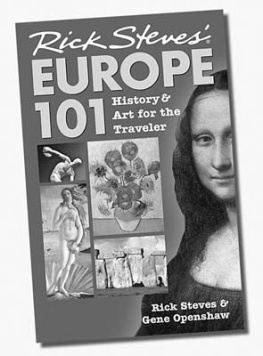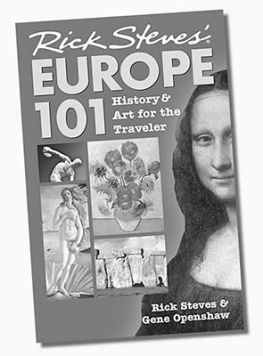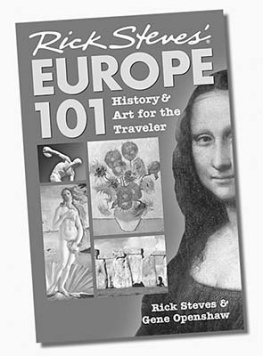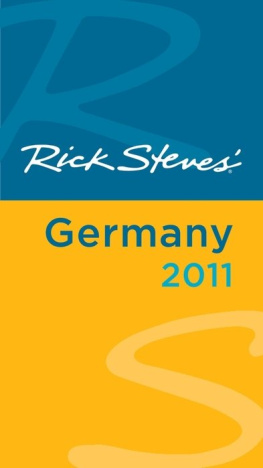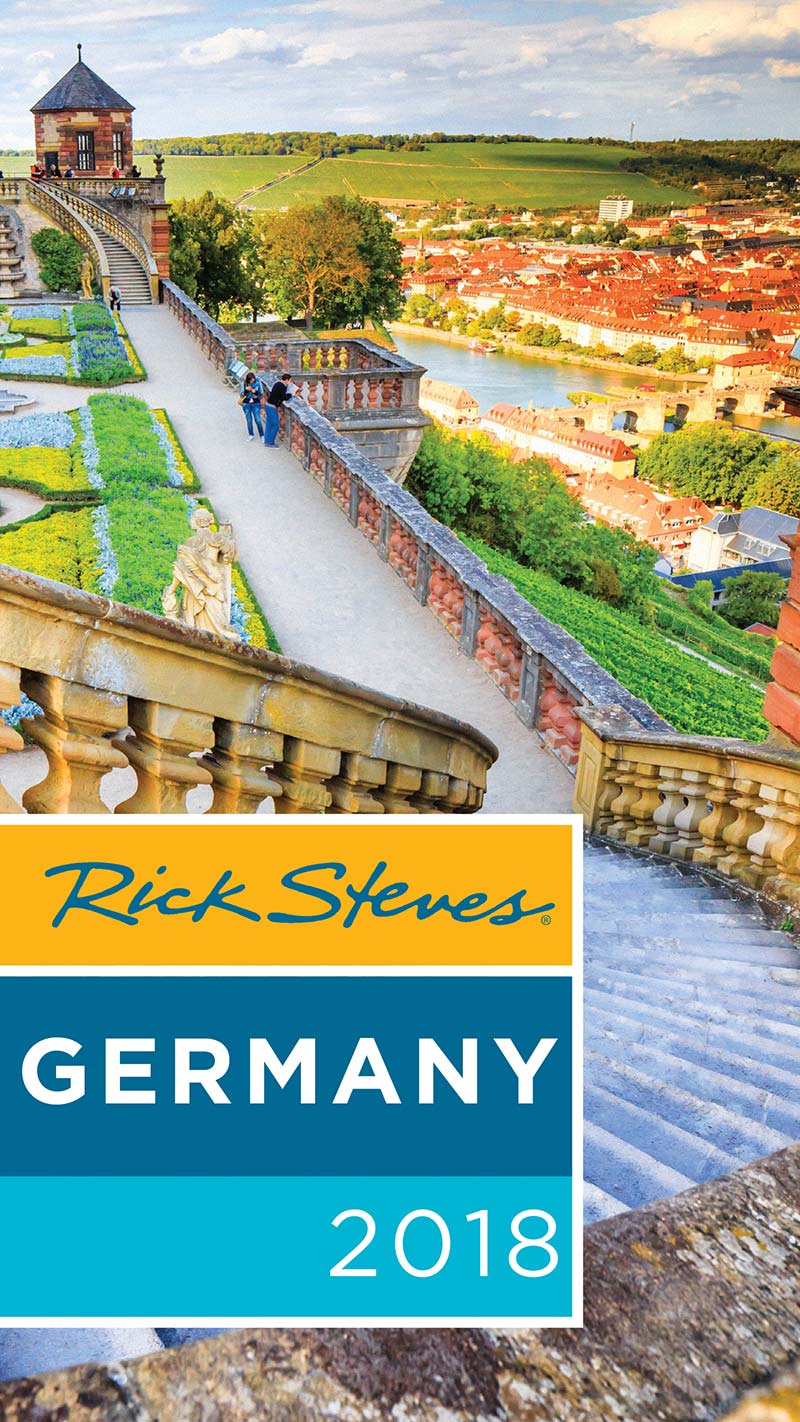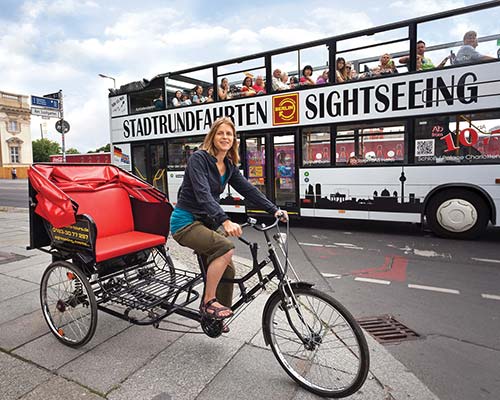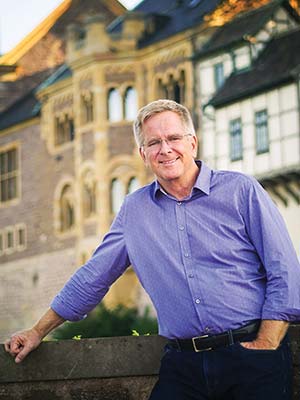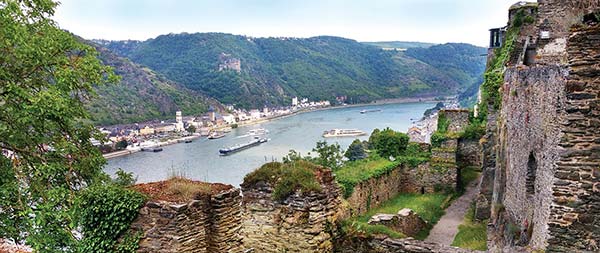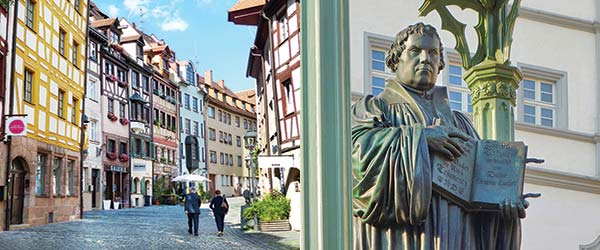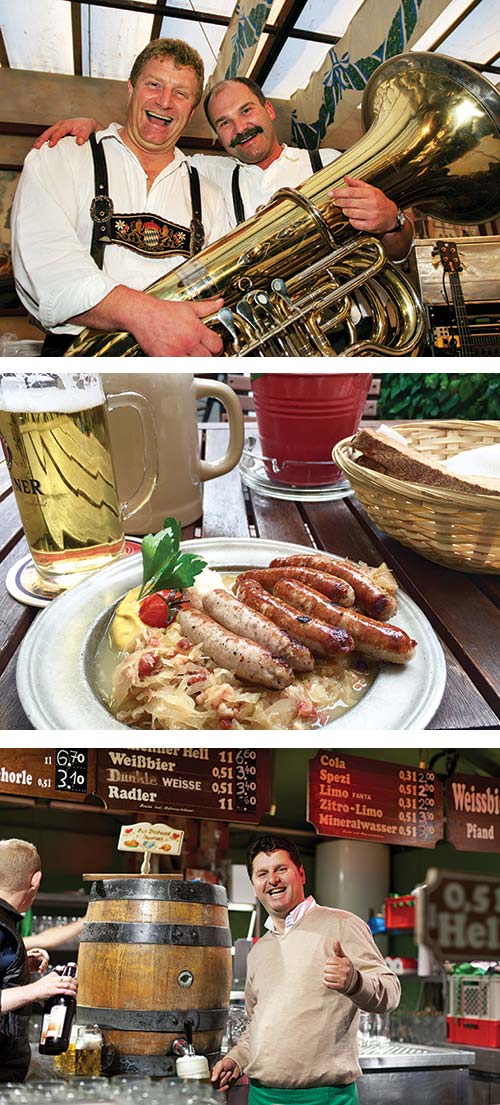Contents
Contents
Rick Steves
GERMANY 2018
Welcome to Rick Steves Europe
Travel is intensified livingmaximum thrills per minute and one of the last great sources of legal adventure. Travel is freedom. Its recess, and we need it.
I discovered a passion for European travel as a teen and have been sharing it ever sincethrough my tours, public television and radio shows, and travel guidebooks. Over the years, Ive taught thousands of travelers how to best enjoy Europes blockbuster sightsand experience Back Door discoveries that most tourists miss.
This book offers you a balanced mix of Germanys cities and villages. Ive also included a taste of neighboring Austria, with side-trips into Tirol and Salzburg. And its selectiverather than covering dozens of castles along the Rhine, I focus on the best: Rheinfels and Marksburg. My self-guided museum tours and city walks give insight into Germanys vibrant history and todays living, breathing culture.
I advocate traveling simply and smartly. Take advantage of my money- and time-saving tips on sightseeing, transportation, and more. Try local, characteristic alternatives to expensive hotels and restaurants. In many ways, spending more money only builds a thicker wall between you and what you traveled so far to see.
We visit Germany to experience itto become temporary locals. Thoughtful travel engages us with the world, as we learn to appreciate other cultures and new ways to measure quality of life.
Judging from the positive feedback I receive from readers, this book will help you enjoy a fun, affordable, and rewarding vacationwhether its your first trip or your tenth.
Gute Reise! Happy travels!
Germany is blessed with some of Europes most high-powered sights. It has spectacular scenerythe jagged Alps, flower-filled meadows, rolling hills of forests and farms, and rivers such as the raging Rhine and moseying Mosel. And it has hundreds of castles, some ruined and mysterious; others stout, crenellated, and imposing; and still others right out of a Disney fairy tale.
And of course there are the cultural clichs, kept alive more by tradition-loving Germans than by tourist demand. The country is dotted with idyllic half-timbered villages where you can enjoy strudel at the bakery or sip a stein of beer while men in lederhosen play oompah music. Peruse a wonderland of chocolates and stock up on cuckoo clocks.
These traditions stand at sharp contrast with the real Germany of today. The muscleman of Europe, Germany is the European Unions most populous country and has the biggest economy. This land thats roughly the size of Montana creates a gross domestic product thats one-fifth the size of the United States. Germany has risen from the ashes of World War II to become the worlds fourth-largest industrial power. At the forefront of human progress, Germany is a world of high-tech transportation, gleaming cities, social efficiency, and world-class museums celebrating many of historys greatest cultural achievements.
German inventions range from Gutenbergs printing press to Zeppelins zeppelins to Rntgens X-rays to Daimlers and Benzs cars to Geigers counter. Musically, Germany dominated the scene for more than two centuriesBach, Beethoven, Brahms, Handel, Pachelbel, and Wagner. Germans have a reputation as profound analytical thinkers, sprouting philosophers such as Kant, Hegel, Nietzsche, Marx, and Engels.
Medieval Nrnberg hosted Holy Roman Emperors and Adolf Hitler, while Martin Luther shook up the Church and reshaped Christianity.
Germanys roots run deep; the southern half was ruled by ancient Rome. After Rome fell, German lands fragmented into hundreds of small feudal kingdoms, each with its own coinage, king, and castlemany of which still dot the countryside today. These lands became an important European hub for trade and transportation.
It was from Germany that a humble monk named Martin Luther rocked Europe with religious reform. Germany became a Europe-wide battleground for Protestants and Catholics in a series of religious wars.
Traditionallyand in some ways even todayGerman culture divides at a sort of north-south Mason-Dixon Line. Northern Germany was barbarian, is predominantly Protestant, and tackles life aggressively, while southern Germany was Roman, is largely Catholic, and enjoys a more relaxed tempo.
As a nation, Germany is less than 150 years old (born in 1871). Though quite young compared with most of its European neighbors, it quickly became a cultural powerhouse. Its prosperity ended in the humiliating defeat of World War I, followed by Hitlers cruel rule and Germanys near destruction in World War II.
For traditional Bavarian fun, nothing beats an old-fashioned beer hall (Brauhaus) or beer garden (Biergarten). Though the best are in Munich, youll find them all over Germanywith rivers of beer, cheap food, noisy fun, and oompah music.
Beer is truly a drink of the people. Beer hall meals are inexpensive, and surly beer maids pull mustard packets from their cleavage. Unlike with wine, spending more money on beer doesnt get you a better drink. The big question among connoisseurs is, Which brew today?
Beer gardens go back to the days when monks brewed and sold beer. They stored their beer in cellars under courtyards kept cool by the shade of bushy chestnut trees. Eventually, tables were set up, and these convivial eateries evolved. The tradition (complete with chestnut trees) survives, and any real beer garden will keep a few tables (those without tablecloths) available for customers who buy only beer and bring their own food.
Oompah music, hearty sausages, and fresh beer are the perfect ingredients for beer hall fun.
Huge liter beers (called eine Mass in German, or eine pitcher in English) cost about 8. (Mens rooms come with vomitoriums.) If you order a half-liter (eine Halbe), the barmaid is likely to say, Why dont you go home and come back when you are thirsty? You can order a Helles (light in color but not lite in calories),


